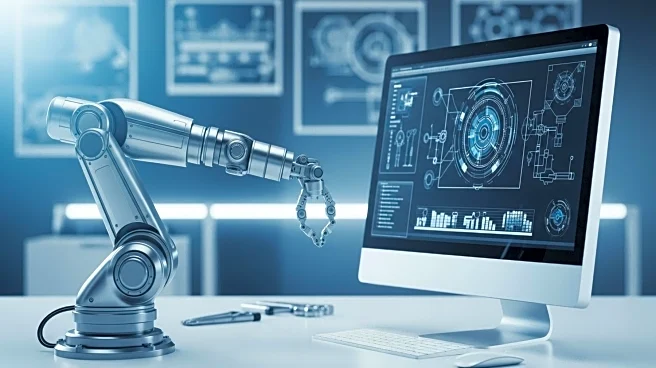What's Happening?
Engineering firms are increasingly adopting artificial intelligence (AI) to automate routine tasks such as drafting proposals, technical documentation, compliance checks, design iterations, and maintenance schedules. This shift is aimed at reducing administrative burdens and allowing engineers to focus on more impactful work. The use of AI in these areas is expected to significantly boost productivity, with research indicating potential global productivity gains in the trillions. The integration of AI is part of a broader trend towards digitalization and efficiency in the engineering sector, driven by tight margins, strict compliance requirements, and the need for rapid delivery.
Why It's Important?
The adoption of AI in engineering is crucial as it addresses the industry's need for increased efficiency and competitiveness. By automating routine tasks, firms can allocate more resources to innovation and problem-solving, which are critical for maintaining a competitive edge. This technological shift also aligns with broader economic trends towards digitalization and advanced manufacturing, which are key components of national industrial strategies. Firms that successfully integrate AI into their operations are likely to see improved project delivery times, reduced costs, and enhanced overall performance, positioning them well in a rapidly evolving market.









